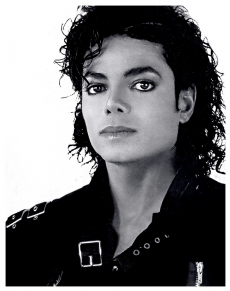
Michael Jackson’s work is a wonderful example of the success of the hybrid genre that is American Popular Music, with Jackson going on to be rightfully ‘crowned’ as the ‘King of Pop,’ a befitting title for someone who created such a diverse array of music. Jackson’s album ‘Dangerous’ in particular harking back to African-American roots, especially with songs such as ‘Keep the Faith.’ The song has a direct and inspiring message of continuing through hardships, and of self-empowerment; ‘Cause you can, climb the highest mountain, swim the deepest sea, all you need is the will to want it,’ and is coupled with an R&B transition into a lushly harmonised Gospel section in the middle of the song. The incorporation of Gospel vocals is a clear tribute to the music of African-Americans, along with a reference to religion, as Gospel was and is still popular with Christian communities in America. This broad inclusion of themes simply through the musical style is a powerful statement of identity, and a willingness to express it through music, without the boundaries of Motown, and as such, is a core example of American Popular Music. ‘Will You Be There’ is a another song from the album, again with soft flowing verse, leading to climactic Gospel choruses with an underlying and uplifting theme of religion and hope. In contrast to the other song, Jackson has a long choral beginning, atypical to most popular music, and also includes spoken word/poetry and the end of the song; ‘In my darkest hour, in my deepest despair, will you be there.’ This in many ways is reminiscent of all those previous protest songs, with the focus returning to the lyrics, and the song being an inspiring, motivational piece. Equally, although Jackson lushly orchestrates his pieces, the orchestration is subtle, with no instruments over-powering, and thus, the main attraction still being the voice, as was the case with the music of the African-American peoples before.
Overall, I would say that there is a very strong case for American Popular Music being the ‘music of the people.’ Largely this is due to the African-American roots of a large proportion of the music, along with the intrinsically hybrid nature of the music. Although a lot of the American population is not in fact African-American, the country as a whole, went through the struggles of the American Civil Rights Movement, and as such has learnt to sympathise and take on that form of culture as their own. This infusion of cultures lends itself perfectly to hybridity; such a wide demographic of peoples with different backgrounds inhabit the US, and all have their own styles of music as forms of identity, and with this merging of musical forms and identities, a whole new identity is formed, and thus comes with it; the music of the people. This music now incorporates all aspects of life; religion, hope, sorrow, hardships, inequalities, and now, more so than ever, victory against injustice, positivity and the memories of the music that brought the people of America to where they are now. As such, I think it is impossible to argue otherwise, with such a broad and dynamic style of music such as that of American Popular Music, that it could ever be anything than that of the music of the people.
Image:http://www.fanpop.com/clubs/michael-jackson/images/25237761/title/michael-photo

0 Comment:
Be the first one to comment on this article.